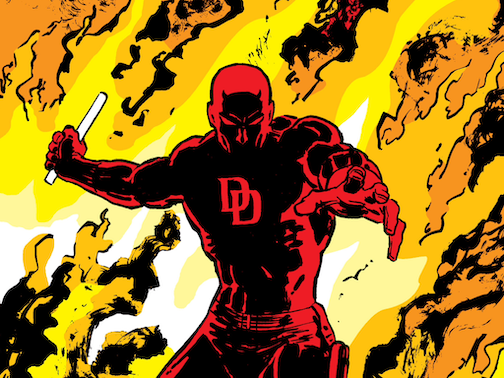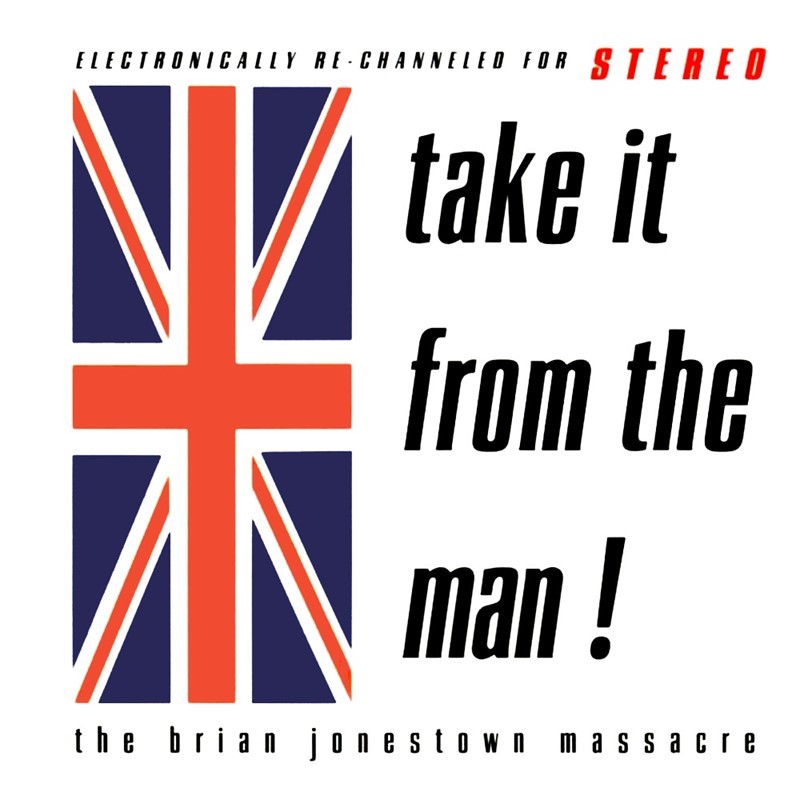Across The Margin takes a look back at one of the most iconic moments in the greatest television show ever made…
 by: Michael Shields
by: Michael Shields
There are moments in life, sometimes small in nature, which you never forget. Those pivotal conversations, chance encounters and experiences to which you look back upon and realize that in that very instant, that juncture in time, you experienced something extremely significant. It might not be apparent at the time, but hindsight tells a different story. It is moments such as these that we cherish and hold dear, as if not for them we wouldn’t be the person we eventually became. These are the junctures in time that define us and make us who we are.
The same holds true for storytelling. Many of the most pivotal junctures in a story’s progression seem merely but a bump in the road along the character’s journey, but as the tale unfolds you soon realize how momentous, and how telling, that occasion was. What I aim to discuss with you here today is the impact of one of these easily overlooked moments, one that unfolded within one of the greatest stories ever told…
“Ya’ll can’t be playing checkers on no chessboard yo!” – D’Angelo Barksdale
It’s no secret that chess can be used as a metaphor for almost anything. Any time strategy is in play a metaphor to the game of chess is readily at hand. But it is a testament to the genius of David Simon in how he equated chess, and the various pieces that trounce about the chessboard, as a metaphor for the drug game in an episode of The Wire entitled “The Buys.” To begin this episode, the third of the initial season, three members of the low-rise crew are waiting on a re-up. To pass the time, two of its members, Bodie and Wallace, are playing what they believe to be checkers. D’Angelo, who heads this lower level crew, is appalled that they are playing checkers with a chess set. But it is what he does next that is admirable, for he spots an opportunity to teach the youngins a thing or two, and as the scene unfolds, it becomes evident that we are in the midst of a truly iconic moment in television history.
D’Angelo begins to teach Bodie and Wallace the game of chess in a very unique and clever fashion, by comparing it to the drug game, which all three of them know intimately by now. D’Angelo ingeniously puts a complex game like chess in terms Bodie and Wallace can understand. Yet it is important to note that Wallace and Bodie are not the only people being schooled here, as his explanation serves to interpret for the viewer the hierarchy that exists within the street system, and also highlight the hopelessness within it.
“See this – this is the Kingpin. Aight? And, he the man. You get the other dudes King you got the game. But he trying to get your King too, so you got to protect it. Now, the King, he move one space any direction he damn choose, ’cause he’s the King. Like this, this, this, a’ight? But he ain’t got no hustle. But the rest of these motherfuckers on the team, they got his back. And they run so deep, he really ain’t gotta do shit.” – D’Angelo Barksdale
D’angelo begins this unforgettable soliloquy at the top, the King, the most important piece on the chessboard, akin to the Kingpin running the show on the street, in this case Avon Barksdale. He explains that the King has limited range, but that matters little as he has a whole crew set up to handle his business, to watch his back. He then describes the abilities of the Queen “who has all the moves” that both Wallace and Bodie instantly realize refers to Stringer Bell, the brains behind their operation. He shrewdly compares the Rook’s movements to that of the stash spot, where they hide the drugs, and then he moves on to the crux of the matter, the chess pieces that relates to all three of them. The Pawns…
“What about them little bald headed bitches right there?” – Bodie
“These right here, these are the Pawns. They like the soldiers. They move like this, one space forward only. Except when they fight, then it’s like this. And they like the front lines, they be out in the field.” – D’Angelo Barksdale
Pawns, which are often used as bait or as stationary deterrents, are valuable primarily for their abundance, hence their disposability is often their strength. They are not valued for their unique abilities, as they have few. Sadly, in the scheme of the Barksdale crew, D’Angelo, Wallace, and Bodie could be described in this light. Whereas we think of the King and Queen as fairly autonomous operators, the very definition of the word “Pawn” carries with it the implication that someone else is entirely in control of their actions, as Avon and Stringer are ((It is also interesting to note that the Pawn comparison not only works on the street – as McNulty, Greggs, Bunk, etc could be looked at as Pawns within the system they operate it.)).
The metaphor is heavy-handed, almost a little too obvious, but it works, and what D’Angelo is teaching Bodie, Wallace, and the viewers here is layered. He isn’t simply explaining how to play chess, but he is putting their entire situation into perspective. He is highlighting the fact that the game (drugs not chess) is a whole lot bigger than Bodie or Wallace might understand, and that it has unfathomable depths.
When Bodie learns of the possibility of a Pawn becoming a Queen, he can’t help but draw a comparison with himself, hoping that one day he could make a similar leap. D’Angelo is immediately skeptical, and bluntly lets them know that the Pawns are taken out early in the game, implying they are always at risk.
“So, how do you get to be the King?” – Wallace
“It ain’t like that. See, the King stay the King. Aight? Everything stay who they is, except for the Pawn. Now, if a Pawn made it all the way down to the other dudes side he get to be Queen, and like I said the Queen ain’t no bitch. She got all the moves.” – D’Angelo Barksdale
“But if I make it to the end I’m top dog?” – Bodie
“Nah yo, It ain’t like that. Look, the Pawns in the game – they get capped quick, they be out the game early.” – D’Angelo Barksdale
“Unless they some smart-ass Pawns.” – Bodie
Still, Bodie insists a smart-ass Pawn can be successful. He is fully aware of his role – just not ready to buy into the limitations of it. Bodie’s response, while funny and a gritty display of confidence, is actually a hard pill to swallow. What comes off as arrogance is actually a form of ignorance, as he doesn’t understand the limitations of his situation. The American Dream so many of us buy into – where we can make something of ourselves, and be anything we want to be – doesn’t apply to Bodie, or to Wallace, or even D’Angelo.
By series end all three of the chess players wound up dead, and it’s poignant to note that their demise was at the hands of their employers ((“We knew that if we got a long enough run, all 3 of the chess players would be out of the game. – David Simon)). What D’Angelo said that day in the low rises turned out to be all too prophetic, and even though Bodie lasted the longest and proved to be a smart-ass Pawn, he eventually got what was coming to him. All in the Game I suppose. All in the Game.
It’s fun to look back at this historic moment in television knowing how it all finally played out. This scene, at the surface a seemingly innocent lesson in a common household board game, foreshadowed and set up so much of what was to come. D’Angelo isn’t so much teaching them how to play chess as he is trying to help them understand that the world in which they live in is far more complex than they could comprehend, and to help them come to terms with their place in the game.
It may have been an obvious metaphor, but it was also perfect. Simon uses chess, something familiar to most, to explain something so very unfamiliar, the drug game; to ease us into a world we know little about, and prepare us for the journey ahead. The metaphor helps us understand the unsympathetic rules that govern this foreign land, and we are let in on the fact that the street hustle isn’t based simply on the free market system of Capitalism, but that’s it’s also about protecting what is yours. It isn’t as simple as two sets of teams hunting each other’s Kings according to a known set of rules, but rather that there are a set of restrictions levied upon us due to the position in life that we find ourselves in. To put it simply, life isn’t fair.





